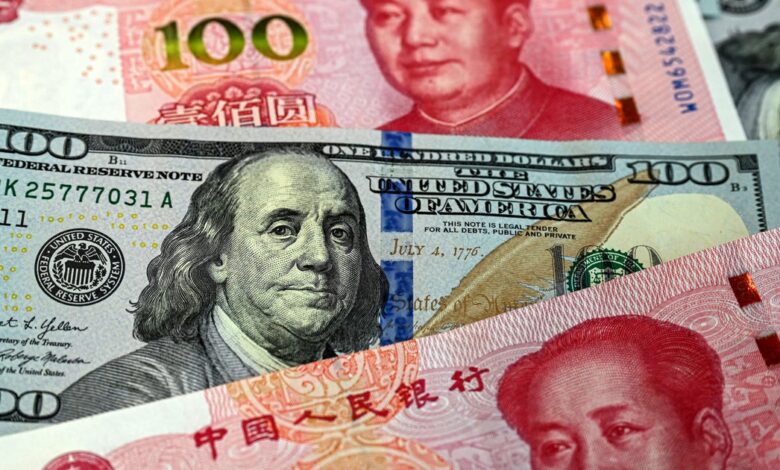China says “door to talks is open” after Trump pauses higher tariffs on other countries

In a recent statement, a spokesperson for China’s Commerce Ministry expressed hope that the United States would take steps to de-escalate the ongoing trade war between the two global economic powerhouses. This plea from Beijing comes on the heels of President Trump’s decision to temporarily halt the imposition of higher tariffs on various countries.
“We have always maintained a clear and consistent stance: the door to negotiations is open, but it must be done on an equal footing with mutual respect,” stated Commerce Ministry spokeswoman He Yongqian. “China will continue to stand firm on its position. We believe that pressuring, threatening, and resorting to blackmail are not constructive ways to engage with China. We urge the U.S. to engage in dialogue with us, based on principles of mutual respect, peaceful coexistence, and mutually beneficial cooperation, to address our differences through peaceful means.”
President Trump recently announced a pause on the implementation of increased tariffs for most nations, maintaining a 10% universal tariff while raising tariffs on Chinese imports from 104% to 125%. These heightened levies came into effect simultaneously with China’s retaliatory tariffs of 84% on U.S. goods imported into China.
“I have reiterated China’s stance on numerous occasions, and it remains crystal clear. We are not instigators of conflict, nor do we shy away from it. The legitimate development rights of the Chinese people, as well as people worldwide, cannot be infringed upon. China’s sovereignty, security, and development interests, like those of all nations, must be respected,” affirmed He Yongqian.
The Chinese Foreign Ministry adopted a tougher stance, vowing to persevere in the face of adversity. “The reckless and unjust actions of the U.S. go against the will of the people and are destined to fail. In a tariff or trade war, there are no winners. While China does not seek a trade war, we are prepared to defend our rights and interests. We will not stand idly by as the legitimate rights of the Chinese people are trampled upon, or as international trade rules are violated. Should the U.S. persist in pursuing a tariff war, China will fight to the end,” stated Chinese Foreign Ministry Spokesperson Lin Jian.
Despite the escalating tensions, President Trump expressed optimism about reaching a resolution with China. “China is willing to make a deal. They are just unsure how to proceed,” remarked the president during a press briefing at the White House.
In a related development, the European Union announced a 90-day pause on any retaliatory tariffs against the U.S., mirroring the U.S.’s temporary tariff rollback. European Commission President Ursula von der Leyen emphasized the importance of affording negotiations a chance, signaling a potential thaw in trade relations between the EU and the U.S.
As markets reacted positively to the tariff rollback by the U.S., concerns about economic uncertainty persisted among global leaders and economists. Holger Schmieding, chief economist at Berenberg, cautioned that significant risks still loomed over the global economy.
In conclusion, as the world navigates the complexities of international trade relations, diplomatic efforts and negotiations remain crucial in resolving disputes and fostering economic stability. The willingness of nations to engage in dialogue and find common ground is essential in promoting mutually beneficial trade practices and ensuring sustainable economic growth.





